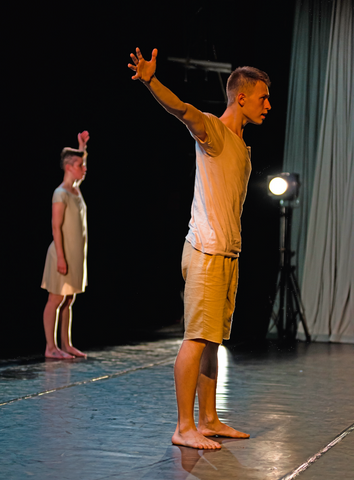
Live Theatre
£14.95
The written element of a practical course can appear to be an inherent contradiction within the subject. In discussions with fellow teachers, it often becomes clear that there is unfairness about this part of the examination. More often than not, it can be perceived as a grade reducer; those students who struggle with their GCSEs have their practical achievements undermined by the daunting challenge of a two-hour paper.
In preparing for it, those who were once engaged in practical work gradually become disaffected by the thought of sitting behind tables in rows. The very excitement of going to see live theatre becomes tainted with the negative association of the work that will inevitably follow.
Having said this, it is possible to perceive the process differently. If the students enjoy the practical work then they can enjoy recognising the parallels between this work and the tools professional actors use when they try to engage an audience. Observing practitioners and learning from them can enhance students’ own performance and enable them to become better directors of their peers. Ultimately, if their interest in the work can be maintained, then this could be their best chance of achieving some written success.
Rather than writing this scheme as a series of lessons, I’ve approached it as a range of activities which can either be used separately or combined to create an intensive exploration of the play. I’ve focused my response around the musical Blood Brothers by Willy Russell, which is a text that is often discussed in examination responses.
The production is currently showing at the Phoenix Theatre in London and also regularly undertakes national tours. Obviously, these ideas could be applied to other productions and by illustrating the work with specific practical examples, I hope you will be able to understand the process and apply it to your own theatre visits.
Scheme sections:
- Before the visit
- During the visit
- After the visit
- A practical response to the performance
- Creating a written response to the performance
Number of Lessons: n/a




